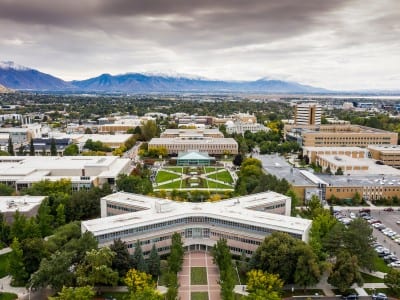
Several have urged me to comment on the Honor Code revisions at Brigham Young University with regard to homosexuality, and I suppose it’s time that I say at least something. Herewith, therefore, several propositions. They are neither exhaustive nor systematic, and I offer them here in no particular order:
- Although this topic has obviously inspired controversy in some circles, until today (when a student mentioned it to me and I heard news of a demonstration elsewhere on campus) nobody at BYU has so much as alluded to the topic in my hearing, except for one passing conversational reference to it from the chairman of my department (Asian and Near Eastern Languages). Not only hasn’t it loomed large, it just hasn’t been on my radar screen. That radar screen has been occupied by teaching, committee meetings, midterms, student papers, and the like.
- Some hope and expect, reasoning by analogy from the cessation of plural marriage in 1890 and the lifting of the black priesthood restriction in 1978, that same-sex marriages will ultimately receive approval from the Church of Jesus Christ of Latter-day Saints and be solemnized for all eternity in the temples of the Church. However, although God is free and sovereign and entirely capable of surprise — as C. S. Lewis liked to say, Aslan is not a tame lion — I have no such expectation. This for at least two reasons, one much stronger and more serious than the other:
- First, from a purely secular perspective: None of the living apostles seem at all inclined to make such a change, and, actuarially speaking, they are likely to be in charge of the Church for decades to come.
- Second, from a doctrinal perspective: The removal of the priesthood ban for blacks was, theologically speaking, a small matter. It altered little if anything of substance beyond itself. So, too, the granting of priesthood to women — which I don’t expect, but which is conceivable — would not fundamentally change our doctrine. By contrast, regarding homosexual marriages as the functional equivalent of heterosexual marriages in the eternities would not only be contrary to fact — they are, for purposes of generating posterity, simply not functionally equivalent — but would require a virtually complete transformation of our understanding of the purpose of life, the plan of salvation, and the nature of the eternities.
- Brigham Young University is an integral part of the Church of Jesus Christ of Latter-day Saints, and is likely to remain such. In that light, it exists not only to be a university — in the manner of UCLA, Colorado State, Princeton, and Cal State Fullerton — but to assist in the formation of committed young Latter-day Saints. Its general direction is, therefore, tightly controlled by the leadership of the Church, and should be.
To be continued.












